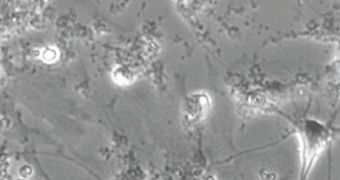A collaboration of investigators from the Washington University in St. Louis (WUSL) School of Medicine (WUSM) and the University of Pennsylvania was recently able to shed some new light on the intricate correlations between sleep problems and neurodegenerative disorders such as Alzheimer’s.
Their work revealed that a broken cellular clock of sorts may be responsible for the type of brain damage associated with mild cognitive impairment (MCI), Alzheimer’s disease and other dementias.
For a long time, scientists have known that sleep loss or sleep debts contribute to increasing a person's risk of developing neurodegenerative disorders. At the same time, experts studying dementia know that disruptions in regular sleeping patterns are some of the earliest tell-tale signs of neural disease.
The new investigation revealed that a single gene is responsible for these effects. The master clock gene is called Bmal1, and it plays a role in controlling our bodies' natural rhythms and sleep-wake cycles. When it shuts down, sleep pattern disruptions occur immediately, the group learned.
At the same time, the shutdown also leads to brain cells suffering the exact same type of damage that is seen in Alzheimer’s disease and other dementias. This effect also led to blockages in process responsible for neutralizing free radicals, dangerous chemicals that can cause damage to the body.
“Normally in the hours leading up to midday, the brain increases its production of certain antioxidant enzymes, which help clean up free radicals. When clock genes are disabled, though, this surge no longer occurs, and the free radicals may linger in the brain and cause more damage,” says researcher Erik Musiek, MD, PhD.
Musiek holds an appointment as a WUSM assistant professor of neurology, and was the first author of a new paper detailing the findings. The results are published in the November 25 issue of The Journal of Clinical Investigation.
The research was conducted on lab mice, where researchers were able to note what happened after the Bmal1 master clock gene was shut down artificially. “Mice normally are active at night and asleep during the day, but when Bmal1 is missing, they sleep equally in the day and in the night, with no circadian rhythm,” Musiek concludes.

 14 DAY TRIAL //
14 DAY TRIAL //